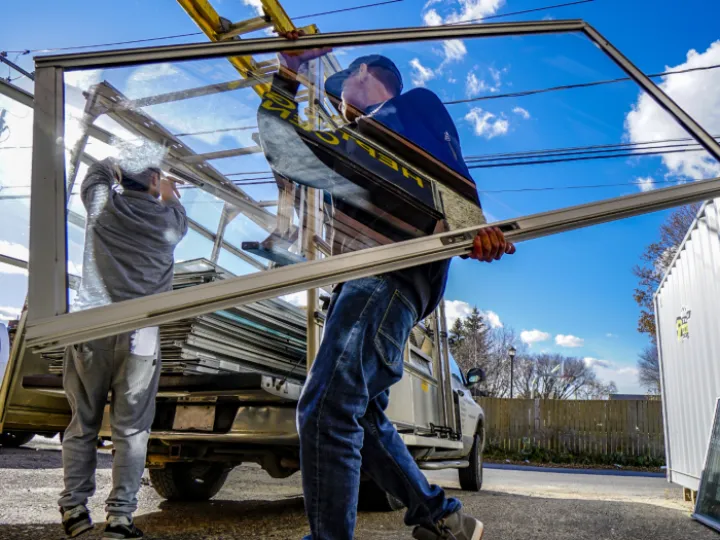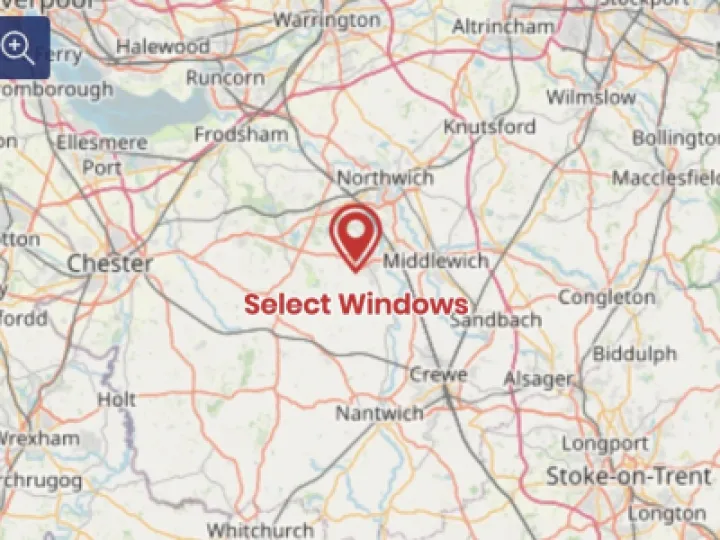Pitfalls of window replacement
Windows don't last forever; the time will come when every home could do with some new windows.
Modern materials such as PVCu and aluminium mean that windows can often have a long lifespan before presenting problems.
But many of us still live in homes with wooden windows, often cheaply manufactured and installed as part of an 'estate' built by workers skilled in other trades.
Signs that windows are reaching the end of their lives are when they start to cost you money to repair and maintain. A string of bills for sealing up draughts and the soaring heating costs, especially during the cold winter, are sure signs that your windows probably need replacing.
But there are a few things to consider before placing an order to fit replacement windows to your property.
What to look for in new windows
Apart from giving your home a new look, replacing windows can dramatically reduce energy bills. Double and triple-glazed windows may cost more initially, but they will soon start saving you money as your heating bills come down.
Modern window frames retain heat more efficiently than old solid wooden frames. Even metal windows that are generally inefficient at keeping in the heat can incorporate special cavities to improve their thermal performance. Establishing exactly what you want from your window before deciding on a replacement is essential.
Make room outside the window
Removing and replacing the old window with a new one can cause mess and inconvenience. Windows on south-facing walls may benefit from a clear low-E coating, which will allow in light whilst reflecting solar heat, helping to keep your rooms fresher in summer.
Hopefully, your window installer will have plenty of experience and take proper precautions to cause as little trouble as possible. But you can still do things to help, and here are some pointers. Make sure that workers can transport materials to the site easily.
Paths can be cleared of clutter, and outside areas can be made accessible. Workers may need room for ladders, bricks, cement and other materials. Installers will need space outside to place the old frame and somewhere to keep the replacements. Flowerbeds and lawns may need some protection so they do not get trampled on.
Clear the interior window space
Clear out the whole area to make a new window installation as trouble-free as possible. Remove all curtains and blinds, as well as their fixings and fittings, so there is nothing to get in the way when the window installers arrive.
Take down any wall mirrors, wall prints or paintings in the vicinity to ensure they are not knocked or damaged accidentally. This also includes any plant plots or ornaments that grace the window sill. It may seem obvious, but it is incredible how long workers can stand around waiting for the worksite to be cleared before they can start.
On the inside, floors and carpets will need some protection, and furniture may need to be covered with protective dust sheets. It may even be better to relocate valuable furniture items to another room.
Choosing the right style window
The style of windows can be a decisive factor in home design. One of the first things to notice when stepping into a room is the quality of the light. Some places feel open and airy, while others feel dingy and dim.
Window style and design are a high priority when considering the exterior facade, but how it affects the interior is important. It is worthwhile to put some time aside to consider how the light will fall throughout the day, the views outside, and at what time of the day the room is likely to be used.
This is particularly true with fitting wide bifold windows installed to maximise the light. Be aware that super-wide windows can lead to overheating. Lots of glass does not inevitably result in a more comfortable room.
Other things to consider are whether you are opting for a classic traditional look or aiming at a modern contemporary style, the frame construction material, the efficiency of the glazing and the price. The choice for older period homes may be limited to timber casement windows. In modern homes, the emphasis is often on the sleek, minimalist look of aluminium.
Choosing the correct type of window
Windows come in all shapes and sizes, but most fall into the following categories, with advantages and drawbacks for each:
Casement windows: These traditional open-out windows can come in various flavours, from single-pane modern to small panes designed to copy Georgian patterns. The most common is the side-hung casement hinged at the side for easy opening, but they can be top or bottom-hung or even pivoted on a central hinge. The main advantage of the casement window is cost, as they are usually made in modular sizes to standard designs.
Tilt and turn windows: While casement windows open externally, tilt and turn windows open inwards. They can be fully opened sideways or titled from the bottom to open partially. The main advantages here are versatility, high flexibility with ventilation, and security, as they need not be opened fully. They are handy in smaller rooms.
Sash windows: Sash windows are typical in traditional homes. They don't use a hinge to open but are composed of two windows that slide over one another. They provide excellent ventilation, particularly side by side, as one can be opened at the top and the other at the bottom to create good airflow around a room. Traditional sash windows are made of wood, but modern materials help avoid the drawbacks of warped sash windows getting 'stuck'. Composite sash windows with wood inside and aluminium outside have become very popular.
Bay windows: Bay windows project outwards from the wall in a bow shape to improve lighting and ventilation. They have the advantage of allowing more light and creating extra space in the room. Box bay windows have flat sides and a flat frontage, while bow bay windows are curved. Bay windows these days are usually made from UPVC , mainly due to the lower prices.
Choosing the window material
These days, the primary materials for windows are wood, plastic and metal, with composite windows variations on all three.
Timber windows are popular for traditional and period homes. It is thermally efficient but comes with a maintenance overhead. Softwoods are cheaper and can be stained or painted, but they do need looking after. Hardwoods have a tighter grain and will last longer but come at a higher price.
Aluminium is the metal of choice for modern homes. They offer slim sightlines and make maximum use of the glass. They can be manufactured in various colours and are virtually maintenance-free, but they are more expensive, and metal is a poor insulator.
Plastic windows made of PVCu have been the primary material for replacement windows in recent years. Combining cheapness with low maintenance, they are often the most effective option. However, they have limited aesthetic appeal and can be costly to repair.
Composite windows have become increasingly popular, mixing different materials to get all the advantages. They are often made of solid timber with a 'coating' of aluminium and PVCu. They are long-lasting and relatively low maintenance, but initial costs can be high.
Get the right glazing
With an estimated 25-30% of heat lost through the windows of the average UK home, thermal efficiency is a vital consideration when deciding to replace your windows. These days, the whole window's thermal efficiency (not just the glass) is rated from A to G by the BFRC (British Fenestration Rating Council). Double and triple-glazed windows can offer extra insulation layers but come at an additional cost. The energy savings are estimated to be from £100 to £120-a-year for a typical detached home.
Reasons to replace your windows
Many people consider having replacement windows installed but are put off by the high cost. But it often becomes far less expensive when you factor in the money saved by installing energy-efficient windows. The following factors should also be considered if they apply to your home.
If your current windows are over 20 years old, you should consider replacing them; if they don't have double glazing, you should consider it seriously. Other factors include having windows that don't open or close properly, do not have up-to-date window locks, or are ill-fitting or draughty.
Always consider window replacement not as an expense but as an investment. Not only will you be repaid by greater comfort and lower heating bills, but you will also be adding to the price of your property should you ever wish to sell.
More on choosing windows
Types of window glass
Choosing new windows
Varieties of sash window
Flush frame windows
CALL 01606 863553
for a free quote on new windows
Select Window Systems
Phone: 01606 863553
Email: hello@swsonline.co.uk
Visit: Unit 2, Woodford Court, Winsford, Cheshire, CW7 2RB
Cheshire doors and windows.
Window and door installations across Cheshire.
Visit Our Cheshire Showroom
Disclaimer
Select Window Systems accepts no responsibility or liability for any damages or costs of any type arising out of or in any way connected with your use of this website. Select Window Systems cannot be held liable for any actions taken in reliance on any published content, which is for information purposes only.


